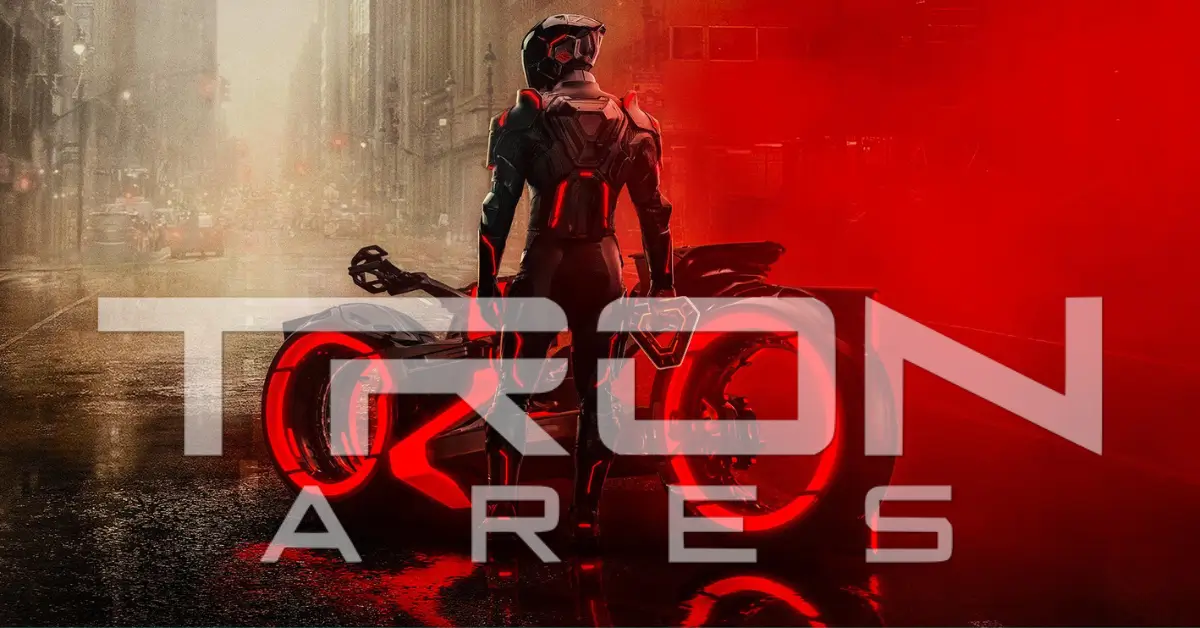Tron Ares: Digital Consciousness and the Psychology of Artificial Intelligence
In an era where the line between technology and humanity grows increasingly blurred, Tron Ares emerges as a thought-provoking exploration of consciousness, identity, and existential purpose. This latest installment in the iconic Tron franchise doesn’t just dazzle with neon-lit digital landscapes and high-octane action sequences it delves into profound questions about what it means to be sentient in an age of artificial intelligence. By following an AI entity’s journey into the human world, the film creates a unique opportunity to examine psychological concepts through the lens of science fiction, offering viewers a mirror through which to reflect on our own search for meaning and belonging.
Thank you for reading this post, don't forget to subscribe!Basic Film Information
Title: Tron Ares
Release Date & Production Year: October 10, 2025
Director: Joachim Rønning — known for Pirates of the Caribbean: Dead Men Tell No Tales and Maleficent: Mistress of Evil, bringing his expertise in visual storytelling and large-scale adventure narratives
Screenwriters: Jesse Wigutow and Jack Thorne, based on characters by Steven Lisberger and Bonnie MacBird
Main Cast & Characters:
- Jared Leto as Ares: A sophisticated program sent from the digital world into the real world, experiencing psychological adaptation to human existence
- Jeff Bridges as Kevin Flynn: The creator of the digital realm, returning to the franchise with his unique perspective on the bridge between digital and human consciousness
- Greta Lee as Eve Kim: A brilliant programmer whose work facilitates Ares’ entry into the real world, serving as a human guide to emotion and identity
- Evan Peters as Julian Dillinger: Antagonist and son of Edward Dillinger, whose motivations challenge Ares’ developing understanding of human psychology
- Jodie Turner-Smith as Athena: A member of an elite special forces unit initially aligned with Ares
- Cameron Monaghan as Canus: A battle-weary soldier questioning the meaning of war, providing a human parallel to Ares’ existential journey
- Gillian Anderson in an undisclosed role
- Arturo Castro as Seth: Assistant to Eve Kim
- Hasan Minhaj as Ajay Patel
Genre: Science fiction, action, adventure
Awards won: As the film is yet to be released, no awards have been announced
Runtime & Rating: Specific runtime and rating have not been disclosed as of now
Plot Summary
General Overview
Tron Ares marks a groundbreaking evolution in the Tron universe by inverting the traditional premise: rather than humans entering the digital world, we witness Ares a highly advanced program crossing the boundary into physical reality. This historic first contact between humanity and an autonomous digital entity sets the stage for a narrative rich with psychological exploration. As Ares navigates the unfamiliar landscape of the human world, he must fulfill a mysterious mission while confronting questions about his own nature and purpose that mirror fundamental human psychological struggles.
Mental Health Themes
The film explores several significant psychological and existential themes:
- Identity formation and the search for selfhood beyond programming
- Consciousness and what constitutes “being alive”
- Adaptation and psychological resilience when navigating unfamiliar environments
- The development of emotional intelligence and empathy
- Existential anxiety and the search for meaning
- The psychological impact of otherness and belonging
- Cognitive dissonance when confronting new realities that challenge core beliefs
Key Turning Points
While specific plot details remain under wraps, the film’s narrative appears structured around several psychologically significant moments for Ares. His initial encounter with the complexity of human emotion likely serves as a catalyst for self-examination. Interactions with Eve Kim and others prompt him to question his programming and purpose, while confrontations with Julian Dillinger potentially force him to reconcile conflicting values and loyalties. These turning points parallel universal psychological processes of growth, adaptation, and identity development.
Ending Analysis
Without revealing specific spoilers (as the film has yet to be released), the resolution will likely address whether Ares can reconcile his digital origins with his developing human-like consciousness. The conclusion may explore whether true psychological integration is possible across the digital-human divide, potentially offering commentary on our contemporary relationship with increasingly sophisticated artificial intelligence.
Setting & Cinematic Techniques
Filming Locations
Principal photography in Vancouver, Canada provided diverse urban and natural landscapes that create visual contrast to the digital realm. This contrast serves not just as aesthetic choice but as visual metaphor for the psychological distinctions and overlaps between digital and human consciousness.
Cinematography
The film reportedly features a striking visual approach that contrasts the geometric precision of the digital world with the organic imperfection of reality. Director Joachim Rønning’s visual storytelling employs distinct color palettes to externalize internal psychological states, with the neon blues of the digital realm gradually integrating with warmer human-world tones as Ares develops emotional complexity. Camera techniques likely shift from rigid, mechanical movements during Ares’ early adaptation to more fluid, subjective perspectives as his consciousness evolves.
Sound & Music
The involvement of Nine Inch Nails for the film’s score represents a perfect thematic match, as the band’s work has consistently explored the intersection of technology and humanity, mechanistic precision and raw emotion. The soundtrack promises to enhance the psychological journey through auditory cues that reflect Ares’ evolving consciousness perhaps beginning with more electronic, structured compositions that gradually incorporate organic instruments and emotional resonance as his psychological development progresses.
Acting & Character Portrayal
Lead Actor’s Performance
Jared Leto’s portrayal of Ares presents unique challenges in depicting the psychological evolution of a non-human entity developing human-like consciousness. Leto’s method acting approach and previous experience portraying complex, alienated characters (including his role as Niander Wallace in Blade Runner 2049) suggests a performance that will likely capture the subtle progression from programmatic behavior to emotional awareness through nuanced physical expression and vocal modulation.
Supporting Cast
Jeff Bridges’ return as Kevin Flynn adds psychological depth through his character’s unique perspective as someone who has existed in both worlds. Greta Lee’s role as Eve Kim appears central to the emotional education of Ares, potentially serving as both catalyst and guide for his psychological development. The diverse supporting cast represents various facets of human experience against which Ares can define his emerging identity.
Accuracy & Authenticity
While the portrayal of a digital entity developing consciousness necessarily ventures into speculative territory, the film can achieve psychological authenticity by grounding Ares’ development in recognizable human processes of identity formation, emotional learning, and existential questioning. The success of this portrayal will depend on whether Ares’ journey feels psychologically truthful despite its fantastical premise.
Mental Health Representation: Strengths & Weaknesses
Psychological Accuracy
Tron Ares approaches mental health not through clinical diagnosis but through existential themes that resonate with universal human experiences. The film’s exploration of consciousness, identity, and purpose has the potential to illuminate psychological concepts like cognitive development, emotional intelligence, and the construction of selfhood in metaphorical yet meaningful ways.
Stigmatization vs. Awareness
By placing these psychological explorations within a non-human character, the film creates an opportunity to examine mental and emotional processes without the baggage of human stigma. This approach can potentially help viewers reflect on their own psychological experiences from a safe conceptual distance, fostering greater awareness and empathy.
Impact on Public Perception
The film has the potential to contribute positively to public discourse about consciousness and artificial intelligence. By portraying Ares’ psychological journey with nuance and dignity, Tron Ares could encourage viewers to consider both the similarities and differences between human and artificial consciousness, potentially shifting perceptions about what constitutes “mind” in an increasingly AI-integrated world.
Critical Reception & Awards
Critics’ Reviews
While critical reactions await the film’s release, early promotional materials have sparked discussion about the visual aesthetics and thematic ambitions of the project. Industry observers have noted the ambitious conceptual leap from previous Tron installments, with particular interest in how the film will balance action entertainment with philosophical exploration.
Audience Reactions
Anticipation among fans focuses particularly on how the film will handle the complex themes of AI consciousness and identity. The franchise’s dedicated following appears receptive to this evolution of the Tron universe, with social media discussions revealing interest in the psychological dimensions of a digital entity experiencing the human world.
Awards & Nominations
While speculative at this stage, the film’s exploration of consciousness and identity through sophisticated visual storytelling could position it for recognition in both technical categories and potentially for performances that convincingly portray the psychological journey of non-human characters developing emotional awareness.
Cultural & Social Impact
Discussions Sparked
Tron Ares arrives at a cultural moment of intense interest and concern about artificial intelligence and its relationship to human consciousness. The film has the potential to contribute meaningfully to ongoing discussions about AI ethics, digital personhood, and the psychological implications of creating increasingly sophisticated artificial consciousness.
Influence on Other Films
As one of the first major studio films to explore the psychology of an AI entity entering the human world rather than humans entering digital space, Tron Ares could establish new paradigms for portraying artificial consciousness in cinema. Its approach may influence future films dealing with the psychological dimensions of human-AI interaction.
Mental Health Advocacy
While not explicitly created as a mental health narrative, the film’s exploration of identity formation, belonging, and existential purpose connects with universal psychological experiences. Mental health educators could potentially use the film’s metaphorical framework to discuss concepts like adaptation, emotional development, and the search for meaning in accessible ways.
Personal Reflection & Final Thoughts
Based on available information, Tron Ares appears poised to offer a fascinating metaphorical lens through which to examine psychological development and existential questions. By following an AI entity’s journey into humanity, the film creates a unique perspective on processes we typically take for granted the formation of identity, the development of emotional intelligence, and the search for meaning and purpose.
I would recommend this film to viewers interested in exploring psychological themes through speculative fiction, as it promises to combine visual spectacle with substantive questions about consciousness and selfhood. However, those expecting straightforward clinical portrayal of mental health conditions should understand that the film approaches psychology through metaphor rather than direct representation.
The portrayal could potentially be enhanced by allowing Ares’ journey to include setbacks and struggles rather than presenting a linear progression toward humanity, reflecting the complex, non-linear nature of real psychological development. Additionally, exploring how human characters respond psychologically to Ares’ presence could provide valuable contrast and complexity.
Conclusion
Tron Ares stands poised to make a unique contribution to cinematic explorations of consciousness and identity by inverting the traditional human-into-digital narrative. Through Ares’ journey from the digital world into human reality, the film offers a fresh perspective on fundamental psychological questions that have gained new urgency in our AI-enhanced era.
By examining what it means to develop consciousness, emotion, and purpose through the eyes of a non-human entity, the film creates an opportunity for viewers to reflect on their own psychological processes from a novel perspective. In an age where the boundaries between human and artificial intelligence grow increasingly permeable, Tron Ares invites us to consider not just what machines might become, but what being human truly means.
What are your thoughts on how this film might portray the development of consciousness and identity in artificial intelligence? Does science fiction provide a valuable framework for exploring psychological concepts that might otherwise be difficult to examine directly?

